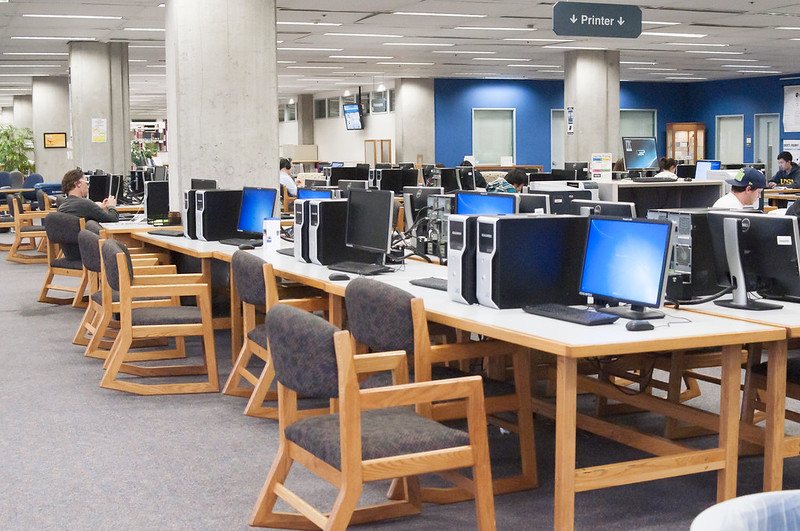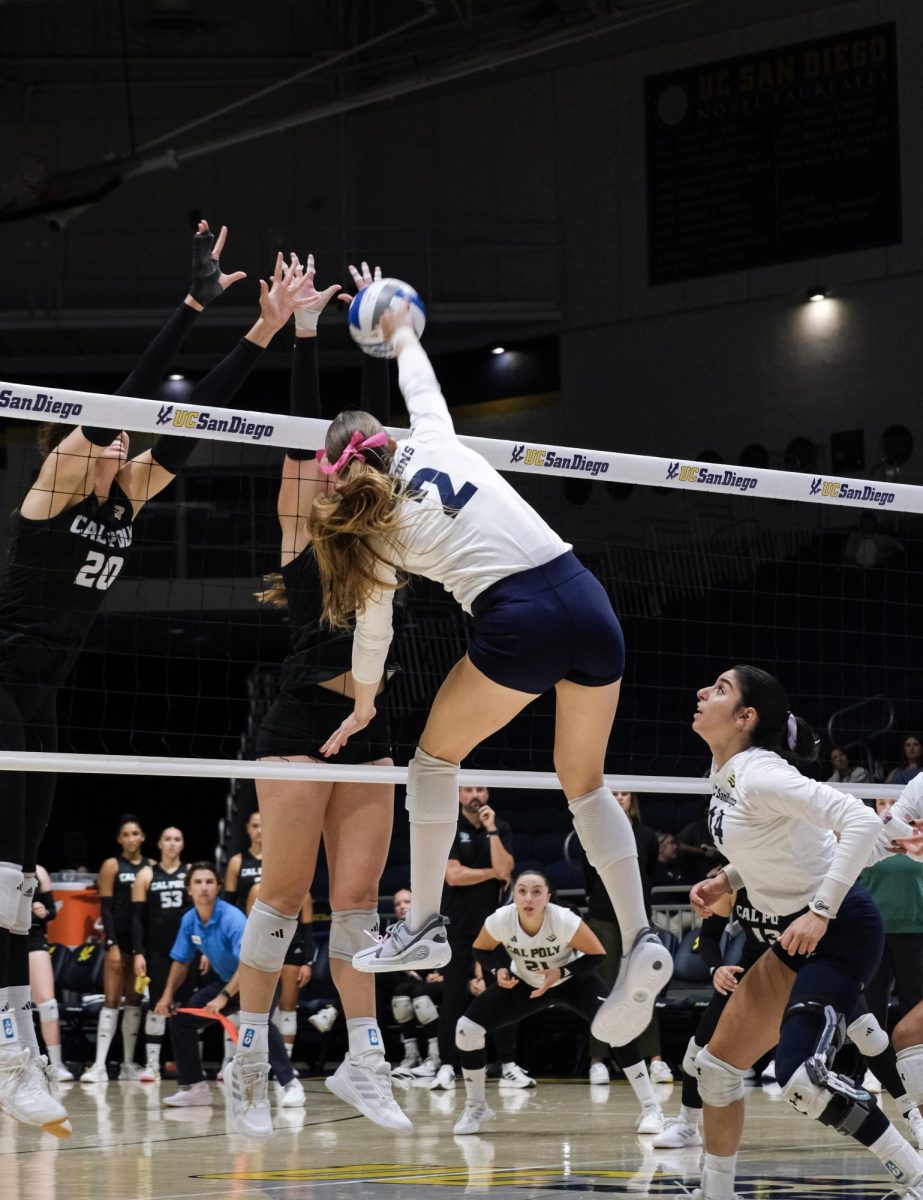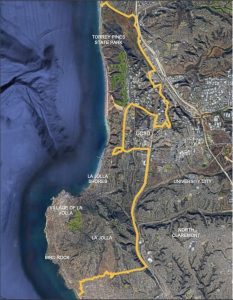BREAKING: Discussion Sections to be Largely Eliminated in School of Biological Sciences Beginning Fall 2023
Photo by Siddharth Atre/ UCSD Guardian
Apr 6, 2023
Sources within the School of Biological Sciences have disclosed that beginning Fall 2023, most discussion sections for lecture courses will be eliminated, leaving the remaining discussion sections with approximately 100 students per Teaching Assistant. Numerous professors within the department have spoken out against the news, but UC San Diego has yet to announce this forthcoming change.
A copy of the Instructional Resource Guide from the School of Biological Sciences obtained by The UCSD Guardian, seemingly confirms the department preparing for this upcoming change. The guide states, “Discussion sections for lectures will be scheduled remotely, with one section scheduled equivalent in size to the lecture.”
More recently, a petition endorsed by four professors within the department has gained traction calling for a reinstatement of the quality of education.
“No scenario exists where these changes will lead to better or equal educational results,” the petition reads. “Despite this, it is likely that we will be paying the same amount in tuition for this decrease in educational quality, which is not only unfair but also puts the students’ well-being and future at risk. With less interaction between students and educators, what is to separate learning at UC San Diego from the University of Phoenix?”
Professor Carolyn Kurle from the department of ecology, behavior & evolution told The Guardian why she chose to endorse the petition.
“I believe that we are here to provide the best education for our students and that includes smaller discussion sections so we have time to explore topics more deeply than we can during lecture,” Kurle said. “Small sections also provide opportunities for connections among students in a less intimidating space and allows for access to instructors who can provide extra help, encouragement, and care to students in a more intimate setting than a large, crowded lecture.”
Kurle echoed similar sentiments as others in the department regarding this decline in educational quality, in addition to increased labor loads on graduate students.
“It will reduce a valuable source of funding for biology graduate students and reduce access to quality education for undergraduates,” Kurle said. “It will also reduce the access to teaching experiences that improve the graduate and undergraduate student experience. Learning to teach via serving as an IA or TA is critical for graduate students who plan to become future academics and it also provides a great opportunity for our undergraduates.”
Previously, a screenshot informing students about the elimination of discussion sections was posted on Reddit. It showed a message by a professor in the biology department cautioning students regarding the changes.
1 IA per 100 Students Gonna be Crazy
byu/Fluxpatty321 inUCSD
“If you are still going to be here or know of people going to come here … they should be aware of these changes to your education that is being forced upon you … our concerns for your education seem not to matter to those who control these matters,” the post read.
The Guardian contacted the professor who made this statement, but they chose to remain anonymous out of concern of potential retaliation by the university. They expressed their disappointment in the university for failing to inform students of this change.
“I wanted students to be aware of what they might have to expect, so they could plan accordingly,” the professor said.
When asked for a comment, Director of Communications for the School of Biological Sciences Mario Aguilar told The Guardian, “This is a fluid situation and there are ongoing discussions.”
While not confirmed, it seems that the upcoming changes are made individually by departments rather than for the entirety of the university.
“Decisions about how courses are configured or delivered are subject to Academic Senate policy and are generally at the discretion of individual schools or departments who best know the course material and learning outcomes for each course offered,” University Communications Assistant Director Erika Johnson said. “Schools and departments are also responsible for determining how many course sections are offered.”
Johnson also relayed a comment from Executive Vice Chancellor Elizabeth H. Simmons regarding the situation.
“As always, maintaining the excellence of our undergraduate and graduate student learning experiences, as well as sustaining an environment supportive of outstanding research, has been at the forefront of our minds in making plans for the future,” the comment read.
These moves, which are presumably a result of the 2022 UAW strike that resulted in higher pay for academic workers, do not come as a surprise. In the previous months, the University of California has advised departments to cut doctorate enrollment as well as retrospectively deducting pay strikers’ pay in an effort to cut down increased costs.
While there are many details to be confirmed, such changes are a disappointment for many continuing their education within the University of California system.
Rachel, a teaching assistant within the School of Biological Sciences who requested to withhold her last name, expressed her disappointment with the lack of transparency from the university.
“It’s frustrating that we aren’t getting direct information from the department. Instead we are getting information from social media and we don’t know how reliable it is,” she said.
Rachel went on to highlight the burden this change will impose on graduate students.
“If these changes are implemented it will result in overworked teaching assistants and the quality of education at UCSD will be compromised,” she remarked.
The UCSD Guardian will continue to update this story as it progresses. For more information on the strike and its aftermath, read the article series published on The UCSD Guardian website.
Photo by Siddharth Atre for The UCSD Guardian

















Daphne Galang • Apr 11, 2023 at 3:02 pm
The UCSD School of Biological Sciences has a distinguished history of basic research overlapping with the Scripps Institution of Oceanography and the School of Medicine, including an alumnus with a Nobel Prize in Medicine & Physiology. Although I support an improvement in the faculty to student ratio for better quality of education, I am not in support the “cut in doctoral enrollment”. To decrease costs, please consider reducing the budget for external programs off campus, such as the UCSD Extended Studies (formerly UCSD Extension) rather than allocating less to graduate studies on campus.
Ashley Juavinett • Apr 9, 2023 at 4:46 pm
Thank you so, so much for writing this. I am so glad the news about this is getting out!
I’m a teaching professor in BioSci and have been involved in many of the conversations about how to move forward, so I wanted to offer a couple additional thoughts.
First, this is fallout from the strike but not entirely from wages: it is also because now, under the new union contract, undergraduate instructional assistants (IAs) cannot lead discussion sections. This, as you can imagine, severely cuts down the number of discussions we can possibly offer! Wages have gone up too, but also the university’s funding to BioSci for our expansive IA program was already not keeping up with the demand. [There is also an annoying logistical concern that has to do with the number of classroom spaces on campus. We probably could pay enough IAs to have ~50 person sections, but there are not enough rooms of that size on campus (yet) .]
Also, I disagree with the final quote that this will result in “overworked teaching assistants.” On the contrary, the BioSci administration is extremely worried about crossing the contract and have communicated to us very strict guidelines about what IAs can and cannot do. So, I’m less worried about IAs being overworked than I am about the quality of our education and the impact these changes will have on first generation and under-resourced students.
Finally, thank you for sharing the petition (chng.it/dMCZvKVx ). I’d strongly encourage everyone to sign it. We’re working on getting more funding, and all of the pressure helps — there is a similar petition for additional funding from EVC Simmons & the university signed by 30+ (and growing) BioSci faculty. We don’t know if it’s possible to get enough money to offset some of these changes, but we are trying. ✊
Ashley Juavinett • Apr 11, 2023 at 6:56 pm
Small correction to my own note: “now, under the new union contract” — not quite. The change in this policy is because of new language in agreements about job titles for TAs. If our undergraduate IAs are doing work similar to graduate TAs (like leading discussion sections), now the interpretation is that we would need to appoint undergraduates as TAs, which 1) is strongly discouraged by higher up administration and 2) would cost a substantial amount more, due to tuition remission that graduate TAs receive.
Anyway, maybe these are semantics but they’re important to understand if we want to figure out *how* we got to this point!
Eduardo Novelo • Apr 9, 2023 at 1:38 am
Is the “Instructional Resource Guide from the School of Biological Sciences” mentioned early in the article publicly available? Searching it up led to an office directory but not to any specific document.